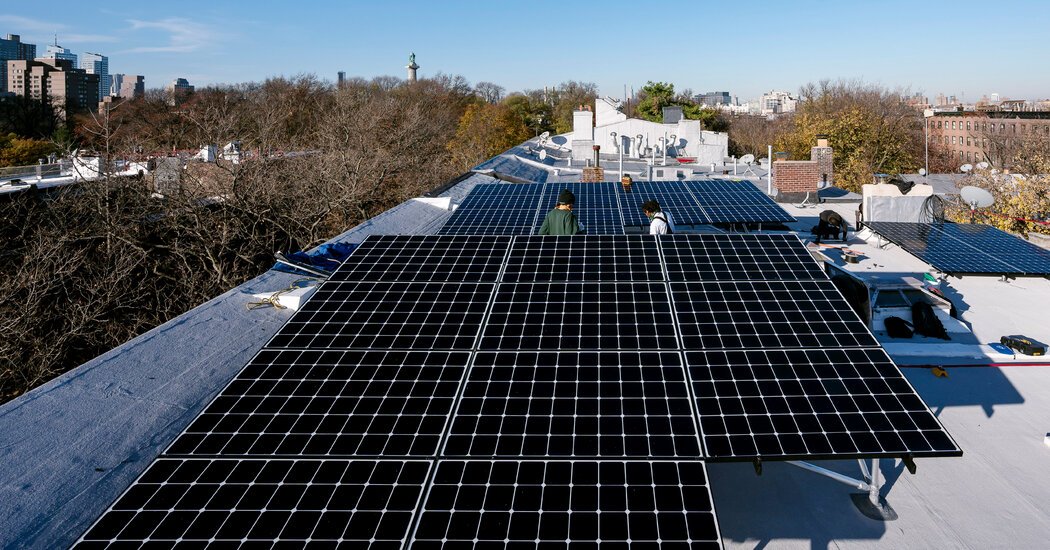The climate funding could help America make a serious dent in its contribution to climate change, Princeton University researchers found. But about half the projected impact will be lost if the country does not speed up the building of large power lines, like the Grain Belt Express.
The problem is not just about power lines. The permitting process and other legal challenges are blocking hundreds of renewable-energy projects, including solar power plants and wind farms, according to the Sabin Center for Climate Change Law.
Communities have various reasons for blocking these projects. Landowners might worry about the government seizing their land. Power lines, wind turbines and solar panels can be eyesores in places that rely on beautiful vistas for tourism. Such projects can damage the environment by displacing wildlife or cutting down trees.
Some critics argue that speeding up permits could also make it easier to build coal, oil and gas infrastructure. Indeed, this is one reason that reform has bipartisan support: Democrats largely want the advances for clean energy, and Republicans largely want the boost to oil and gas production.
The criticisms have made it difficult for lawmakers to agree on what an overhaul should look like. So despite bipartisan support, Biden and McCarthy agreed to only minor changes, to speed up environmental reviews, in last week’s debt deal. They promised to come back to permitting reform in future discussions. Meanwhile, some states, like California, want to limit legal challenges that hold up projects.
Balancing act
The case for a permitting overhaul is that the current system has gone too far. Existing policies have helped protect the environment, landowners and tourism. But they have also become a burden that slows projects far longer than is necessary to ensure safeguards. Reform, then, would be about finding a better balance.
And though changes could allow more fossil fuel projects, they would probably enable far more clean energy projects, experts say. With public attention to climate change, technological breakthroughs and hundreds of billions of dollars in federal spending, clean energy is expected to become cheaper and more competitive than fossil fuels. So developers will be much more likely to build a clean energy project than a fossil fuel one — if they can get the permits.





